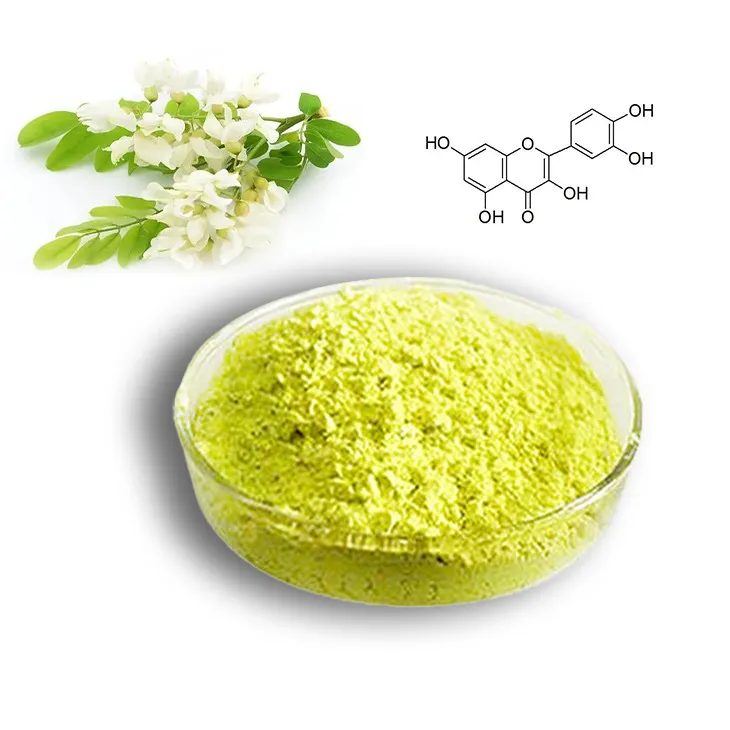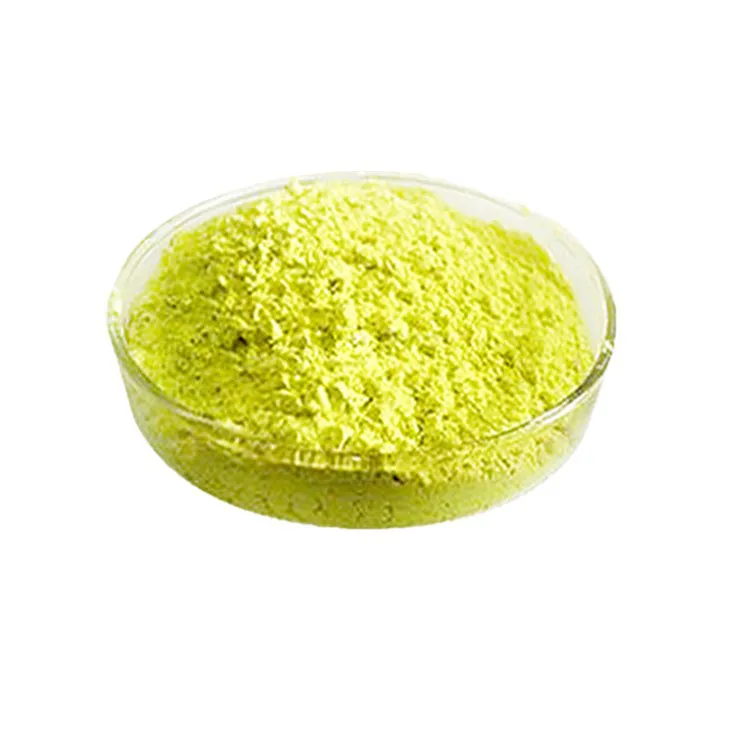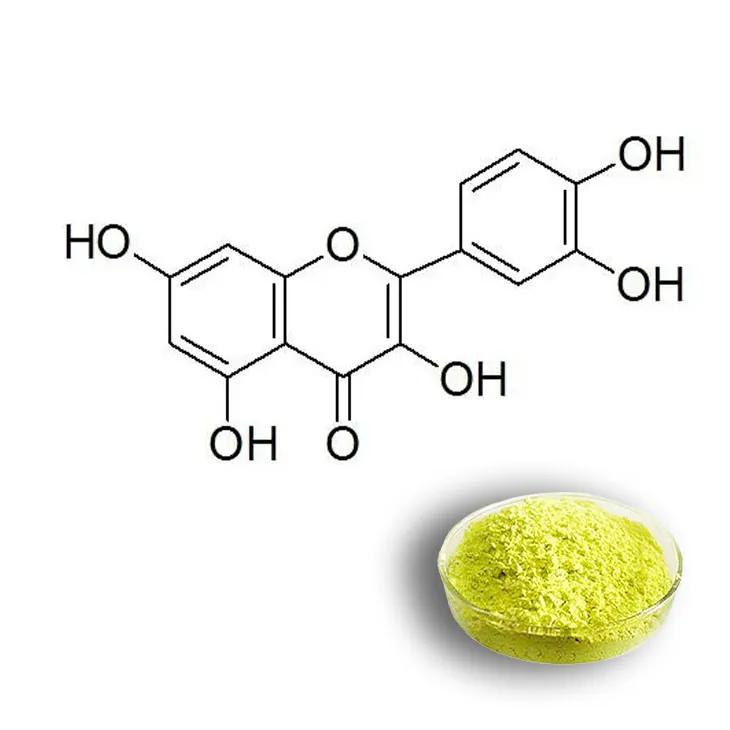- 0086-571-85302990
- sales@greenskybio.com
Powerful Quercetin: Its Role in Athletic Performance
2024-11-14

Introduction
In the world of sports and athletic performance, the search for substances that can enhance performance, aid in recovery, and boost overall health is an ongoing pursuit. One such substance that has been emerging as a significant factor in recent years is Quercetin. This article will explore the various ways in which Quercetin can impact athletic performance, from its antioxidant and anti - inflammatory properties to its potential effects on hormonal balance and the immune system.

Antioxidant Properties of Quercetin
Quercetin is known for its powerful antioxidant capabilities, which are highly relevant in the context of sports. During strenuous exercise, the body undergoes a significant amount of oxidative stress. This oxidative stress is caused by an imbalance between the production of reactive oxygen species (ROS) and the body's ability to counteract them with antioxidants.
When we engage in intense physical activity, the muscles consume large amounts of oxygen. This increased oxygen consumption leads to the production of ROS, which can cause damage to muscle cells, DNA, and other tissues. Quercetin acts as a scavenger of these ROS, helping to neutralize them and prevent oxidative damage.
By combating oxidative damage, quercetin can play a crucial role in maintaining the integrity of muscle cells. This is important for athletes as healthy muscle cells are essential for optimal performance. Muscle damage can lead to a decrease in strength, power, and endurance, all of which are critical factors in athletic success.

Anti - Inflammatory Action of Quercetin
Another important aspect of quercetin in relation to athletic performance is its anti - inflammatory action. After exercise, especially intense or prolonged exercise, the body often experiences inflammation. This post - exercise inflammation can lead to muscle soreness, swelling, and reduced range of motion.
Quercetin helps in reducing this post - exercise soreness and inflammation. It does so by interfering with the inflammatory pathways in the body. Inflammatory cytokines, which are molecules that play a key role in the inflammatory response, are regulated by quercetin.
By reducing inflammation, quercetin facilitates faster recovery for athletes. This means that they can get back to training sooner and with less discomfort. Faster recovery also allows for more frequent and intense training sessions, which can ultimately lead to improved performance over time.

Impact on Hormonal Balance
Quercetin may also have an impact on the body's hormonal balance, which is of great significance for athletes. One of the hormones that it could potentially regulate is cortisol.
Cortisol is a hormone associated with stress. In the context of exercise, cortisol levels can increase during intense training or competition. High levels of cortisol can have both positive and negative effects on exercise performance.
On the positive side, cortisol can help the body mobilize energy sources during exercise. However, chronically elevated cortisol levels can lead to muscle breakdown, decreased immune function, and increased fatigue. Quercetin may help in modulating cortisol levels, ensuring that they remain within an optimal range.
By regulating cortisol levels, quercetin can assist athletes in better handling stress during training and competition. This can lead to more consistent performance and a reduced risk of overtraining and burnout.

Enhancing the Immune System
The potential of quercetin to enhance the immune system is also a crucial factor for athletes. Athletes are often exposed to various stressors, including intense training, travel, and competition, all of which can suppress the immune system.
A strong immune system is essential for athletes as it ensures that they can train consistently without being sidelined by illness. Quercetin has been shown to have immunomodulatory effects, meaning it can help regulate and strengthen the immune system.
It can enhance the function of immune cells such as macrophages and lymphocytes. Macrophages are responsible for engulfing and destroying foreign invaders, while lymphocytes play a key role in the adaptive immune response. By improving the function of these immune cells, quercetin can help athletes fend off infections and stay healthy.
Conclusion
In summary, quercetin has multiple mechanisms through which it can contribute to improved exercise performance. Its antioxidant and anti - inflammatory properties protect muscle cells and aid in recovery, while its potential effects on hormonal balance and the immune system also play important roles.
As research on quercetin continues to progress, it may become an increasingly popular supplement among athletes looking to gain a competitive edge. However, it is important to note that while quercetin shows promise, more research is still needed to fully understand its long - term effects and optimal dosage for different athletic populations.
FAQ:
What are the antioxidant capabilities of quercetin relevant to sports?
The antioxidant activity of quercetin combats the oxidative damage caused by strenuous exercise, which can protect muscle cells and other tissues.
How does quercetin help in reducing post - exercise soreness?
Quercetin has anti - inflammatory action. This anti - inflammatory property helps in reducing post - exercise soreness and inflammation, thus facilitating faster recovery.
Can quercetin regulate hormones related to exercise performance?
Yes, quercetin may impact the body's hormonal balance. For example, it could potentially regulate hormones such as cortisol, which is associated with stress and can affect exercise performance.
Why is quercetin's effect on the immune system important for athletes?
A strong immune system ensures that athletes can train consistently without being sidelined by illness. So quercetin's potential to enhance the immune system is important for athletes.
What are the multiple mechanisms through which quercetin can contribute to improved exercise performance?
Quercetin has antioxidant and anti - inflammatory capabilities. It may impact hormonal balance and enhance the immune system. These are the multiple mechanisms through which it can contribute to improved exercise performance.
Related literature
- The Role of Quercetin in Exercise - Induced Oxidative Stress and Inflammation"
- "Quercetin and Athletic Performance: Hormonal and Immune - related Effects"
- ▶ Hesperidin
- ▶ citrus bioflavonoids
- ▶ plant extract
- ▶ lycopene
- ▶ Diosmin
- ▶ Grape seed extract
- ▶ Sea buckthorn Juice Powder
- ▶ Beetroot powder
- ▶ Hops Extract
- ▶ Artichoke Extract
- ▶ Reishi mushroom extract
- ▶ Astaxanthin
- ▶ Green Tea Extract
- ▶ Curcumin Extract
- ▶ Horse Chestnut Extract
- ▶ Other Problems
- ▶ Boswellia Serrata Extract
- ▶ Resveratrol Extract
- ▶ Marigold Extract
- ▶ Grape Leaf Extract
- ▶ blog3
- ▶ blog4
- ▶ blog5
-
Organic Tongkat Ali extract powder factory.
2024-11-14
-
How to make powder with ashwagandha extract.
2024-11-14
-
Rosehip extract manufacturers from China.
2024-11-14
-
The best cat's claw extract in nature.
2024-11-14
-
Chinese Dandelion Leaf Extract Suppliers.
2024-11-14
-
Echinacea Extract
2024-11-14
-
Medicinal Marshmallow Extract
2024-11-14
-
Berberis aristata Extract
2024-11-14
-
Agaricus Blazei Extract
2024-11-14
-
Clove Powder
2024-11-14
-
Black Garlic Extract
2024-11-14
-
Chia Seed Powder
2024-11-14
-
Saw Palmetto Extract
2024-11-14
-
Cocoa Extract
2024-11-14
-
Eucommia Ulmoides Extract
2024-11-14





















